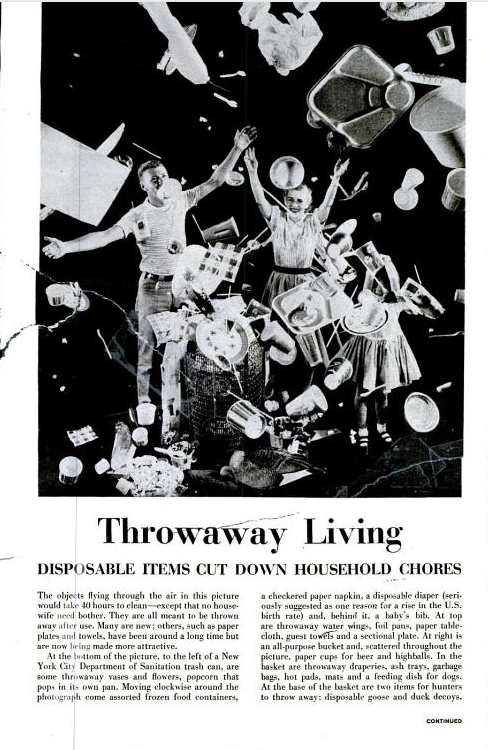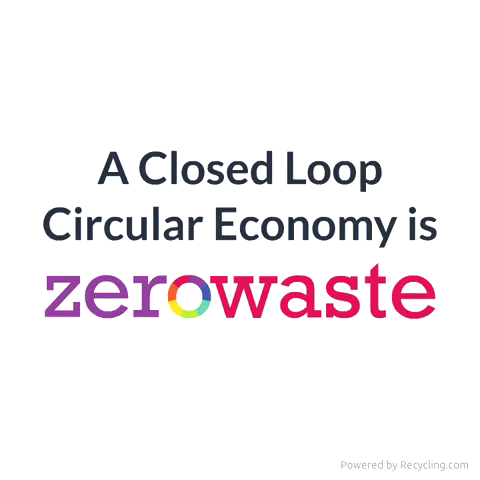Because we currently live in a throw-away economy, with devastating impacts on our psychology, social relationships, health, and environment, evolving away from this paradigm is paramount for our survival.
The invention of cheap plastics in the 1950s seemed like a boon for housewives, and because of the entangled sexism, chauvinism, and classism/sexism that excepted white men from engaging in household chores, the new plastics economy were seen as great timesavers.
A LIFE magazine cover from the 1950s celebrated the profusion of plastics as a godsend, giving us the freedom to live a carefree life without having to deal with the consequences of our actions. The plastic would go in the trash. Our local municipal trash system would simply take it Away. Never mind where “Away” is, as long as it is out of sight and out of mind.

But against the harsh light of science, the stupor of thowaway culture is slowly shifting towards the uncomfortable interconnectivity of our biosphere, and that there is no Away. What happens to a plastic deferred? It doesn’t just fade away, as a chemical-maven Langston Hughes might want us to believe. No, instead, as Hughes intimates, it explodes.
The category called trash lives on in a Frankenstein-like way, coming back to haunt us and our children and our children’s children, through endocrine disruptors and bioaccumulation, chemical sensitivities, and brain-damage. It has become clear that better living through chemistry, as Dow Chemical’s jingle promised, is the cynical pipe dream of sinister opium dens, reliant on the inputs of others to keep living.
Recycle.com has a new logo, akin to the organic and fair-trade logos, that is the “zero-waste” logo. This logo, printed in biodegradable vegetable inks, would signify that a product, including its packaging, bioplastics, biotape, etc., is zero-waste. Not recyclable, or mostly recyclable, but put into a commercial composter, or even negligently blown by the wind, will biodegrade in short order.

This is one option, in the short term, to get past Away. By virtue signaling products that have invested the extra effort to engineer their products with minimal pollutants and zero waste, as long as anarchocapitalism is still around, it can suck vitality from the polluting hydra of the corporatocracy.
Ultimately, zero waste living is the only sustainable course of action. Everything else is rearranging deck chairs on the Titanic.